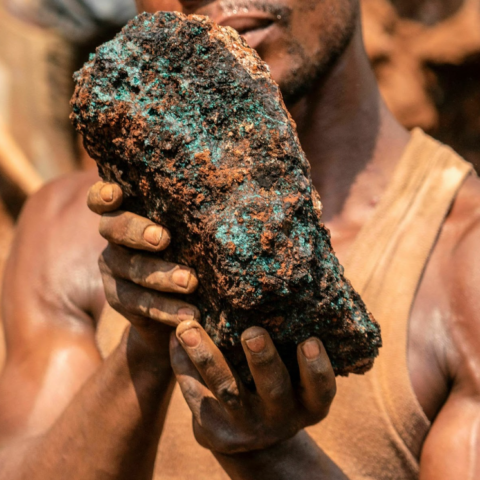By: Yuliya Bila

The climate change debate raging in the United States primarily concerns the question of human agency. Most Americans have accepted the alarming assertion that the Earth’s temperature is rising at an unprecedented rate, but not all elements of the population are convinced that the change has been anthropogenic. The debate in Russia, the fourth largest CO2 emitter in the world, is quite different: should global warming be a cause for concern or celebration?
A cursory look at Russia’s geographic situation would indicate that the country could actually stand to benefit from warmer global temperatures. Approximately two thirds of the vast Russian landmass consists of permafrost—perennially frozen land covered by a few feet of soil that freeze and thaw with the changing of the seasons. Because of these cycles of freezing and thawing, all permafrost construction projects, from home building to laying oil pipelines, require additional measures to cope with the land’s inherent instability. In this unique environment, even basic projects such as road construction present a serious challenge; authorities often choose to stick with gravel rather than incurring the expenses of constantly repaving roads that crack with the expansion and contraction of the land underneath them.
As temperatures rise and the Siberian permafrost recedes by hundreds of yards per year, new lands could theoretically be opened for agriculture and denser, more inexpensive settlement. The wealth of natural resources found beneath the permafrost could be more easily explored and extracted. An ice-free arctic would facilitate the cheaper transportation of these resources to markets around the world. In fact, the opening up of the Northern Sea Route through the Arctic Ocean would allow shippers to cut costs, bypass the Suez Canal, and avoid the risks of piracy in the waters off of the Somali coast. Global warming could cut the distance from St. Petersburg to Vladivostok from 12,000 to 7,500 nautical miles.
Despite these theoretical benefits, the fragility of Russia’s many complex ecosystems significantly complicates the situation. Besides warming up the permafrost (which could in itself fuel global warming), scientists predict that climate change would bring about a deluge of climatic and ecological concerns. Russians are increasingly fearful of phenomena such as insect infestations, droughts, and the deforestation of the steppe. Much of this change in attitude developed as a result of the unprecedented heat wave that struck European Russia in the summer of 2010. Over those few months, Russia experienced the hottest summer ever recorded. Rampant wildfires sprung up concurrently all over the country, destroying one quarter of that year’s grain crop, directly claiming 54 lives, and affecting thousands more with respiratory illnesses due to the heavy smog and poor air quality.
Meanwhile, the dialogue emanating from the Kremlin has lacked in message clarity and consistency. Russia’s experience with climate change has ranged from ratifying the Kyoto Protocol in 2004 year to refusing to participate in 2012. Putin has gone on record both joking about the benefits of climate change in 2003 as well as reaffirming the importance of addressing environmental issues starting in 2009. Regardless of this new affirmation, the government is not likely to pass environmental protection policies that could potentially harm Russian business. In fact, Putin has declared “new energy exploration” as a top priority of his third term. He has bolstered this assertion with the elimination of export taxes for companies that agree to explore new oil fields in the arctic reaches of Siberia.
Regardless of the discussions occurring among Russia’s political and business elite, the people have started to notice and care more about climate change, especially following another brutally hot summer in 2012. Slowly but surely, environmental mass consciousness is developing among a population that has not historically had the freedom to organize around issues related to government policy. However, the environmental movement has remained largely localized. It consists of groups that focus on specific issues such as the cutting down of the Khimki forest north of Moscow while larger organizations, such as Greenpeace Russia, struggle to mobilize a population that feels concerned about but powerless against an issue as colossal as global warming.
On the national scale, economic opportunists, especially the powerful fossil fuel industry, predominate. They are content to see Russia benefit in either absolute or relative terms from the climate change that is sure to strike much more fiercely elsewhere around the globe. Persuaded by the promises of future profits in shipping, industry, and resource extraction, these powerful special interests have few, if any, incentives to alter their policies in any meaningful way. While the Russian government has come a long way since Putin’s declaration that global warming would save his countrymen money on fur hats, the administration does not show signs of being truly ready to tackle this difficult issue. The movement to curb CO2 emissions enjoys little support among the governments of the three largest emitters— the United States, China, and India. Without the cooperation of the fourth, Russia, the prospects of slowing or reversing global warming look grim indeed.

